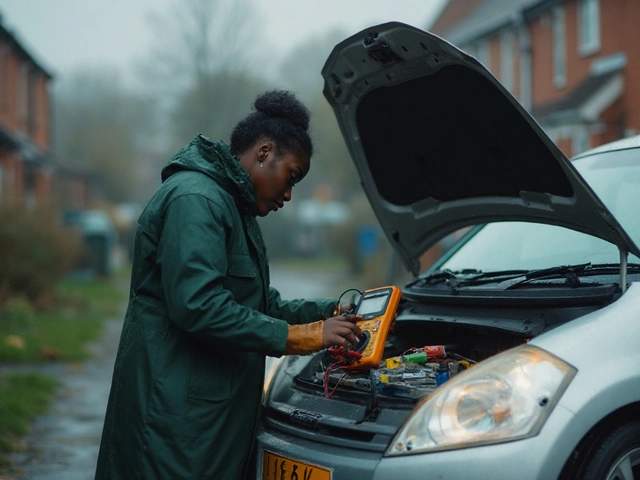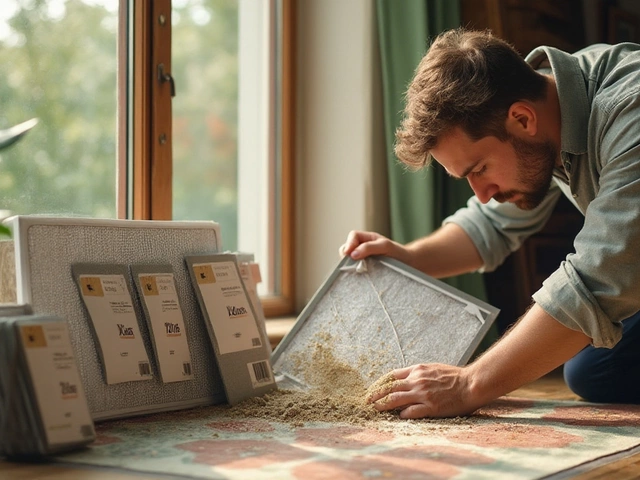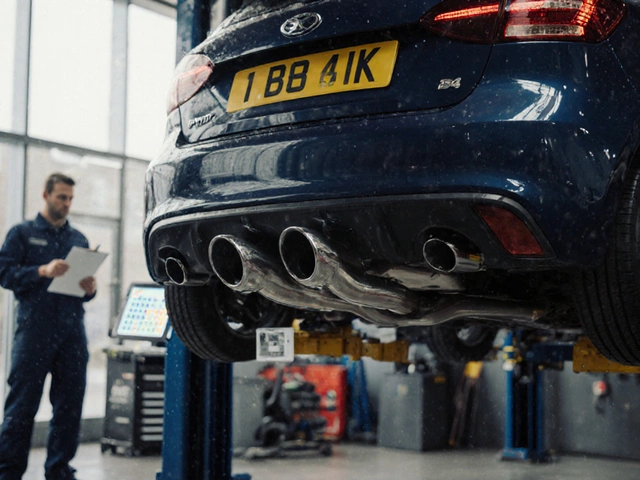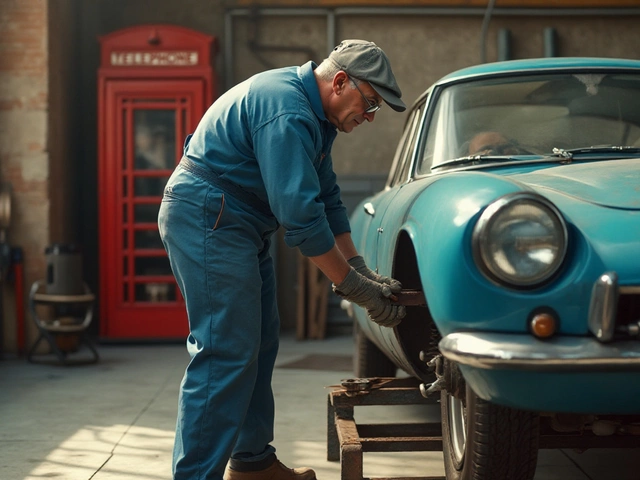Fuel pumps, those little unsung heroes beneath our cars, keep everything running smoothly—until they don't. Ever been on a road trip when the car starts sputtering? That's not the kind of surprise anyone likes. So why do fuel pumps just decide to give up? Let's get into it.
One major culprit? Dirty fuel. Imagine sipping on a sludge smoothie—yeah, not great, right? When fuel gets contaminated with stuff like dirt or rust, it wreaks havoc on the pump. It's like forcing someone to breathe through a straw packed with gum. Got a second? Check your fuel filter sometime.
Electrical gremlins can also be a pain. You know how fragile those connectors and wires can be. A loose connection or frayed wire might just be the silent killer of your fuel pump. Regular checks could save you from an unexpected roadside meltdown.
Contaminated Fuel
Alright, picture this: you’re at a gas station, you fill up, and off you go. Everything seems fine until that little familiar rumble from under the hood turns into ugly sputtering. What happened? Well, your fuel pump might have just met its worst enemy—contaminated fuel.
Contaminated fuel is a sneaky saboteur. It can sneak into your car through something as innocent as using an old or shady fuel station. You know the type, the ones out in the boonies with peeling paint and rickety pumps. These can mix water, dirt, or rust into the fuel, turning your ride into a ticking time bomb for fuel pump failure.
But hang on, how does this mess things up? Let's break it down. Fuel is the lifeblood of your car's engine, and the pump is like the heart pushing it through. When it’s contaminated, it clogs filters and makes the pump work harder. Over time, all this gunk strains the pump, eventually leading it to quit altogether.
Wondering how you can dodge that bullet? Here are some tips:
- Always choose reliable and clean gas stations for fueling.
- Consider using fuel additives that help keep the tank clean, but make sure they’re approved for your car.
- Regularly check and replace fuel filters as they're your first line of defense against debris.
Do you ever wonder just how much bad fuel can hurt a car? Check this out: statistics show that contaminated fuel complicates things for about 80% of warranty claims related to fuel system problems. Big yikes, right?
By being a bit choosy about where you fill up and keeping an eye on your car's maintenance, you can save your pump from an untimely demise. So, the next time you drive past a sketchy station, remember, it’s not just about today’s fill-up; it’s about keeping your ride running smooth in the long run.
Electrical Problems
When it comes to fuel pump failure, electrical issues are more common than you'd think. A fuel pump relies on electricity to work, and any hiccup in that flow can cause trouble. It's not just about the pump itself; it's about all the buddies in the electric circuit game.
The wiring harness is like a road map for the electric current. If there's a break or a short somewhere, that map leads nowhere. Frayed wires, old insulation, or even corrosion can disrupt things. Imagine trying to put together a puzzle with a missing piece—frustrating, right?
Then there's the relay, this little guy acts as the bridge between the ignition switch and the pump. If this bridge collapses, the pump won't get power when you turn the key. Relays aren't invincible, often giving up after repeated use over time.
A faulty fuel pump fuse is another player in the mix. A blown fuse can cut the required power supply to the pump, leading to sudden malfunctions. Regularly checking and replacing worn-out fuses can keep you safe from sudden stops.
Oh, and let's not forget the battery's role. A weak battery might not deliver enough juice for optimal pump performance, especially if you live in extreme climate zones. Ever guessed how all these connect to fuel system problems? They're more intertwined than you might expect.
To prevent these issues, here's a quick checklist:
- Regularly check and replace aging wiring harnesses.
- Inspect relays for signs of wear and replace as needed.
- Ensure your car battery is healthy and charges well.
- Replace fuel pump fuses at the first sign of trouble.
Remember, a little attention to these small parts can help your fuel pump live a long and happy life, avoiding unpleasant surprises on the road.
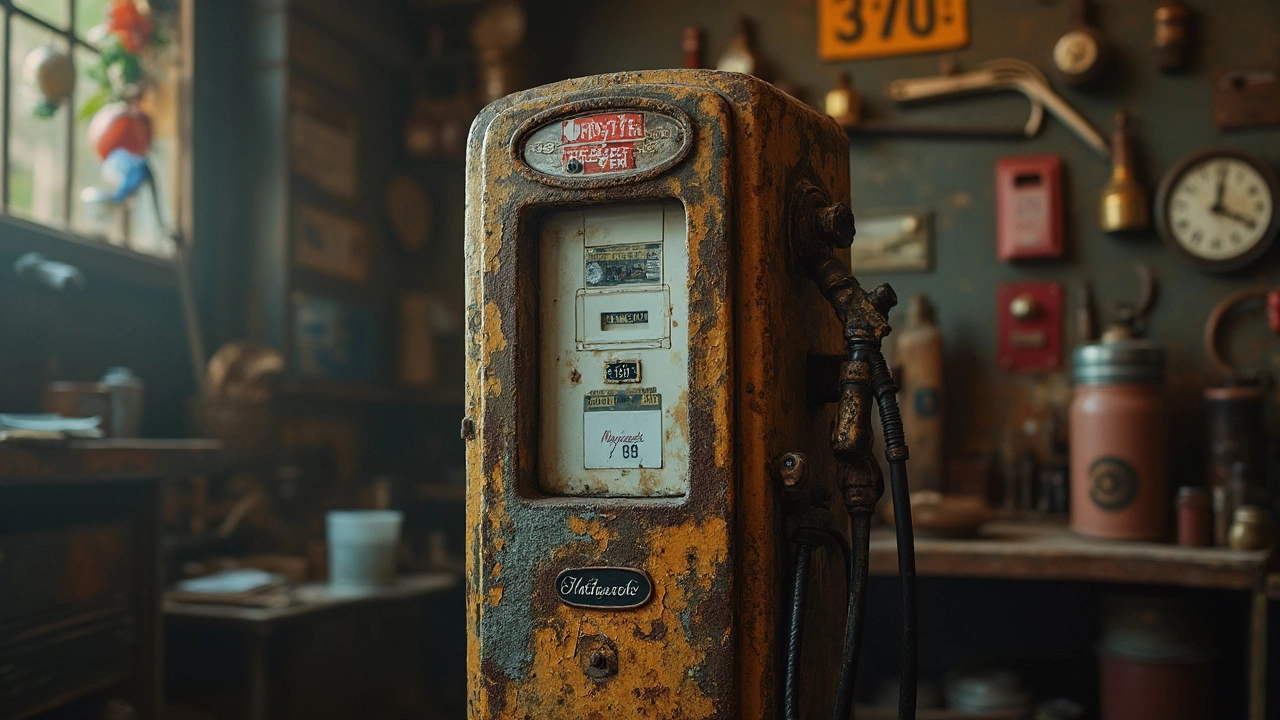
Overheating Issues
Feeling the summer heat isn't just a human problem; your car's fuel pump can suffer too. When a fuel pump overheats, it can stop working suddenly, leaving you stranded. So, what's cooking up this overheating situation?
For starters, fuel pumps rely on proper cooling from the fuel itself. Yep, it sounds strange, but the fuel acts as a coolant. If you're running low on gas constantly, especially in hot weather, you're risking overheating because there's less fuel to absorb the heat. It's like trying to stay cool on a scorching day without a fan.
Now, picture a pump working overtime to deliver fuel through a clogged filter. Hard work means more heat. If your fuel filter is blocked, your pump works harder, gets hotter, and may eventually throw in the towel. Fuel system problems like this are more common than you'd think.
Plus, there's the added drama of environmental heat. If you regularly drive in hot climates or leave your car baking in the sun, the surrounding temperatures can stress the pump. Combine that with low fuel levels, and you've got a recipe for disaster.
Check out this quick tip: Keep your tank no less than a quarter full, especially in hot weather. Regularly replacing the fuel filter is another must to avoid unnecessary strain. A little vigilance goes a long way in keeping your pump from overheating.
Maintenance Tips
Keeping your car's fuel pump in tip-top shape isn't rocket science. It's more about paying attention and a little bit of effort here and there. First off, let's chat about the importance of quality fuel. No shady gas stations! Choosing high-quality fuel isn't just a suggestion—it's pretty much a life support system for that pump.
Regularly replacing your fuel filter can make a huge difference. A clogged filter forces the pump to work extra hard, which can lead to early failure. Checking and replacing it, say, every 30,000 miles is usually a good call.
And then there's the thing we all ignore: fuel levels. Running on empty isn't just nerve-wracking; it's also tough on the pump. Always try to keep at least a quarter tank full. It keeps the pump cool and stops it from sucking up any debris that might've settled at the bottom.
- Stick to high-quality fuel.
- Replace the fuel filter regularly, ideally every 30,000 miles.
- Avoid running your tank too low to prevent overheating.
- Regularly check for any electrical issues, like faulty wiring.
If you're into stats, consider this little tidbit: a well-maintained fuel pump can last anywhere from 100,000 to 200,000 miles. That’s worth keeping in mind next time you're tempted to skip out on maintenance.


